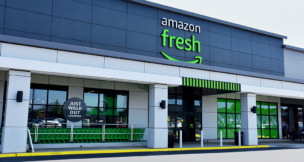Rocket Lab USA launches first US mission for NRO from Wallops
California-based Rocket Lab USA successfully launched a mission for the U.S. National Reconnaissance Office on Thursday from Launch Complex 2 at NASA‘s Wallops Flight Facility in Accomack County, the aerospace company announced. The Eastern Shore mission, dubbed “Live and Let Fly,” was Rocket Lab’s first launch from U.S. soil for the NRO, which builds, designs, […]
Rocket Lab, Leidos sign contract for 4 rocket launches
California-based Rocket Lab USA has signed a contract with Reston-based Fortune 500 contractor Leidos to launch four Hypersonic Accelerator Suborbital Test Electron (HASTE) missions, the launch company announced Tuesday. The suborbital testbed launch vehicle missions will lift off from Rocket Lab‘s Launch Complex 2 at the Mid-Atlantic Regional Spaceport, located at NASA‘s Wallops Fligh[...]
Rocket Lab to launch new hypersonic rocket from Va.
California-based Rocket Lab USA Inc. will launch its new Hypersonic Accelerator Suborbital Test Electron (HASTE) rocket in Accomack County in the first half of 2023. The company introduced the suborbital testbed launch vehicle, derived from its Electron rocket, on Monday. Rocket Lab is preparing the HASTE vehicle for launch for a confidential customer at its […]
Rocket Lab to boost Eastern Shore space biz
The Eastern Shore and Accomack County are well-acquainted with the rockets’ red glare. One of the oldest launch sites in the world, the NASA Wallops Flight Facility launched its first rocket on July 4, 1945. Given its history, it seems fitting that Wallops’ rocket business got a big payload boost in late February when California-based […]
Rocket Lab USA picks Va. for rocket launch site and manufacturing facility
Rocket Lab USA Inc. has selected Wallops Island as the location for its launch site and a new manufacturing and assembly complex for its new Neutron rocket, Gov. Glenn Youngkin announced Monday. The move is expected to create as many as 250 jobs. Rocket Lab will launch Neutron from a new launch pad owned by […]
















